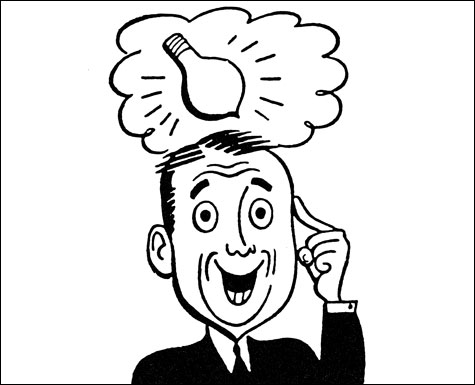against Venezuela written by Manhattan D.A. Robert Morgenthau. However, unfortunately for Quico and Morgenthau, it took the experts over at the
only a few minutes to show how ridiculous the allegations are. Here is
From my colleague Jake Johnston: below is the text of Manhattan D.A. Robert Morgenthau's September 9 Wall Street Journal op-ed, "The Emerging Axis of Iran and Venezuela," with rebuttals for 21 statements in the text.
Points number 9, 11, 15, 20, and 8, and 4 are worth noting because they all deal with allegations made by Morgenthau that are either complete fabrications or without evidence.
Others are grossly misleading statements; most important are numbers 1, 3, 15, 18, and 19.
One other point worth emphasizing: Brazil is on the same page with Venezuela regarding Iran, as is most of the world. Brazil's foreign minister went to Iran last December, where he publicly defended Iran's right to enrich uranium, and announced that expanding commercial and other ties to Iran were "a foreign policy priority" for Brazil. And President Lula himself also defended Iran. Below are two articles quoting Lula that show his opposition to U.S. (and European) bullying, sanctions, etc. against Iran - from just the last week.
________________________________
OPINION * SEPTEMBER 9, 2009
The Emerging Axis of Iran and Venezuela
ROBERT M. MORGENTHAU
The diplomatic ties between Iran and Venezuela go back almost 50 years and until recently amounted to little more than the routine exchange of diplomats. With the election of Iranian President Mahmoud Ahmadinejad in 2005, the relationship dramatically changed. [1) In fact, the relationship deepened before this, during the Presidency of Mohammad Khatami. A meeting with Khatami and Chávez in 2004 saw the agreement for both the development bank, as well as the tractor production . With the election of Ahmadinejad, Chávez was worried the agreements might be threatened .]
Today Mr. Ahmadinejad and Venezuelan President Hugo Chávez have created a cozy financial, political and military partnership rooted in a shared anti-American animus [2) This is just rhetoric, the vast majority of the agreements are economic in nature. Two large oil producers are natural allies.]. Now is the time to develop policies in this country to ensure this partnership produces no poisonous fruit.
Signs of the evolving partnership began to emerge in 2006, when Venezuela joined Cuba and Syria as the only nations to vote against a U.N. Atomic Energy Agency resolution to report Iran to the Security Council over its failures to abide U.N. sanctions to curtail its nuclear program. [3) This is very misleading: this was a vote of only the Board of the UN Atomic Energy Agency. The vote was 27-3, with 5 abstentions. Most importantly, if this were a UN vote, the vast majority of the United Nations today would vote with Venezuela, Cuba, and Syria on this point. Morgenthau makes it look as if Venezuela is isolated on this issue; in fact it is in the large majority.] A year later, during a visit by Mr. Chávez to Tehran, the two nations declared an "axis of unity" against the U.S. and Ecuador [4) Ecuador? This must be a typo, or else this is the strongest evidence that Morgenthau doesn't know what he is talking about. This doesn't say much for the WSJ editors, however, that they missed this]. And in June of this year, while protesters lined the streets of Tehran following the substantial allegations of fraud in the re-election of Mr. Ahmadinejad, Mr. Chávez publicly offered him support [5)As did others, notably President Lula da Silva of Brazil]. As the regime cracked down on political dissent, jailing, torturing and killing protesters, Venezuela stood with the Iranian hard-liners [6) This is misleading, Chávez recognized the elections - for which no credible evidence has been provided demonstrating that they were stolen - but never said he supported jailing or torturing or killing protesters].
Meanwhile, Iranian investments in Venezuela have been rising. The two countries have signed various Memoranda of Understanding on technology development, cooperation on banking and finance, and oil and gas exploration and refining [7) Even the State Department acknowledges that each country has a sovereign right to have relations with any country it chooses]. In April 2008, the two countries also signed a Memorandum of Understanding pledging full military support and cooperation. United Press International reported in August that Iranian military advisers have been embedded with Venezuelan troops. [8) The UPI article is very similar to this one. UPI, like the Washington Times, is now owned by the Reverend Sun Myung Moon's Unification Church and sometimes prints unsubstantiated allegations. This is not a reliable source.]
According to a report published by the Carnegie Endowment for International Peace in December of last year, Venezuela has an estimated 50,000 tons of unmined uranium. There is speculation in the Carnegie report that Venezuela could be mining uranium for Iran. [9) These are complete fabrications, with absolutely no evidence presented.]
The Iranians have also opened International Development Bank in Caracas under the Spanish name Banco Internacional de Desarrollo C.A., an independent subsidiary of Export Development Bank of Iran. [10) This was agreed to before Ahmadinejad became President] Last October the U.S. Department of the Treasury's Office of Foreign Assets Control imposed economic sanctions against both of these Iranian banks for providing or attempting to provide financial services to Iran's Ministry of Defense and its Armed Forces Logistics--the two Iranian military entities tasked with advancing Iran's nuclear ambitions.
My office has been told that that over the past three years a number of Iranian-owned and controlled factories have sprung up in remote and undeveloped parts of Venezuela--ideal locations for the illicit production of weapons [11) No evidence has been presented that such plants are being used for anything other than what they are supposed to be used for]. Evidence of the type of activity conducted inside the factories is limited. But we should be concerned, especially in light of an incident in December 2008. Turkish authorities detained an Iranian vessel bound for Venezuela after discovering lab equipment capable of producing explosives packed inside 22 containers marked "tractor parts." The containers also allegedly contained barrels labeled with "danger" signs [12) Many chemicals are dangerous, so this is not proof of anything. Note also he uses the word "allegedly," making this an even further stretch. ]. I think it is safe to assume that this was a lucky catch--and that most often shipments of this kind reach their destination in Venezuela.
A recent U.S. Government Accountability Office (GAO) study reported a high level of corruption within the Venezuelan government, military and law enforcement that has allowed that country to become a major transshipment route for trafficking cocaine out of Colombia. [13) There is no news here. Venezuela sits between the largest cocaine-producing nation in the world, Colombia, with which it shares a 1300-mile-long border, and the largest cocaine-consuming nation, the U.S. Venezuela long has been, and invariably long will be, a major transshipment route for cocaine simply due to geographic proximity.] Intelligence gathered by my office strongly supports the conclusion that Hezbollah supporters in South America are engaged in the trafficking of narcotics [14) The largest narcotic traffickers in Latin America are based in Mexico and Colombia. Note also the non sequitur here: what does this have to do with Venezuela?]. The GAO study also confirms allegations of Venezuelan support for FARC, the Colombian terrorist insurgency group that finances its operations through narcotics trafficking, extortion and kidnapping. [15) The GAO report does not confirm any allegations - it merely presents allegations. To date, the U.S. government has presented no evidence that Venezuela has provided any material aid to the FARC. Since the State Department has repeatedly demonstrated that they are no fans of Hugo Chávez, we have to assume that they would present evidence if they had any.]
In a raid on a FARC training camp this July, Colombian military operatives recovered Swedish-made anti-tank rocket launchers sold to Venezuela in the 1980s. Sweden believes this demonstrates a violation of the end-user agreement by Venezuela, as the Swedish manufacturer was never authorized to sell arms to Colombia. [16) Chávez addressed this directly: the weapons had been stationed at a military outpost that was raided in 1995, whatever was there was stolen. For the last 40 years, guerrillas in Colombia have stolen weapons inside Venezuela. There is no evidence that this has increased under Chávez.] Venezuelan Interior Minister Tareck El Aissami, a Venezuelan of Syrian origin, lamely called the allegations a "media show," and "part of a campaign against our people, our government and our institutions." [17) It is racist for Morgenthau to mention El Aissami's heritage. What if someone wrote, "Morgenthau, an American of Jewish origin, has written a diatribe against Iran and Venezuela?" That would rightfully be considered anti-Semitic.]
In the past several years Iranian entities have employed a pervasive system of deceitful and fraudulent practices to move money all over the world without detection. The regime has done this, I believe, to pay for materials necessary to develop nuclear weapons, long-range missiles, and road-side bombs. Venezuela has an established financial system that Iran, with the help of Mr. Chávez's government, can exploit to avoid economic sanctions. [18) Morgenthau does not distinguish between UN sanctions, which target the Iranian nuclear program, and U.S. sanctions, which are broader. Venezuela is under absolutely no obligation to abide by U.S. sanctions.]
Consider, for example, the United Kingdom bank Lloyds TSB. From 2001 to 2004, on behalf of Iranian banks and their customers, the bank admitted in a statement of facts to my office that it intentionally altered wire transfer information to hide the identity of its clients. This allowed the illegal transfer of more than $300 million of Iranian cash despite economic sanctions prohibiting Iranian access to the U.S. financial system. In January, Lloyds entered into deferred prosecution agreements with my office and the Justice Department to resolve the investigation.
In April, we also announced the indictment of a company called Limmt, and its manager, Li Fang Wei. The U.S. government had banned Limmt from engaging in transactions with or through the U.S. financial system because of its role in the proliferation of weapons of mass destruction to Iran. But our investigation revealed that Li Fang Wei and Limmt used aliases and shell companies to deceive banks into processing payments related to the shipment of banned missile, nuclear and so-called dual use materials to subsidiary organizations of the Iranian Defense Industries Organization. (Limmt, through the international press, has denied the allegations in the indictment.) The tactics used in these cases should send a strong signal to law enforcement, intelligence agencies, and military commands throughout the world about the style and level of deception the Iranians' employ. Based on information developed by my office, we believe that the Iranians, with the help of Venezuela, are now engaged in similar sanctions-busting schemes.
Why is Hugo Chávez willing to open up his country to a foreign nation with little shared history or culture? I believe it is because his regime is bent on becoming a regional power, and is fanatical in its approach to dealing with the U.S. The diplomatic overture of President Barack Obama in shaking Mr. Chávez's hand in April at the Summit of the Americas in Trinidad and Tobago is no reason to assume the threat has diminished. In fact, with the groundwork laid years ago, we are entering a period where the fruits of the Iran-Venezuela bond will begin to ripen.
That means two of the world's most dangerous regimes [19) Good luck finding any knowledgeable foreign policy expert, even in Washington, that would call Venezuela one of the most dangerous regimes in the world], the self-described "axis of unity," will be acting together in our backyard on the development of nuclear and missile technology. [20) This is ridiculous - no evidence has been presented that this will happen.] And it seems that terrorist groups have found the perfect operating ground for training and planning, and financing their activities through narco-trafficking. [21) What about Mexico, where drug cartels are running large parts of the country and is directly south of the U.S.? Or Colombia, a narco-paramilitary state, with drug-dealers high up in the government?]
The Iranian nuclear and long-range missile threats, and creeping Iranian influence in the Western Hemisphere, cannot be overlooked. My office and other law-enforcement agencies can help ensure that money laundering, terror financing, and sanctions violations are not ignored, and that criminals and the banks that aid Iran will be discovered and prosecuted. But U.S. law enforcement alone is not enough to counter the threat.
The public needs to be aware of Iran's growing presence in Latin America. Moreover, the U.S. and the international community must strongly consider ways to monitor and sanction Venezuela's banking system. Failure to act will leave open a window susceptible to money laundering by the Iranian government, the narcotics organizations with ties to corrupt elements in the Venezuelan government, and the terrorist organizations that Iran supports openly.
--Mr. Morgenthau is the Manhattan district attorney. This op-ed is adapted from a speech yesterday at the Brookings Institution in Washington, D.C.
As you can see, Morgenthau provides no evidence to back any of his wild accusations, yet Quico and other sycophants of the empire gladly offer up their support for this nonsense for its propagandistic value and as a way to slander Venezuela.
What is perhaps the most obvious contradiction of Morgenthau's logic is that it is apparently okay for the US to have close relations with many nations in Iran's proximity including Israel and Pakistan, (who they have supplied with nuclear weapons), Saudi Arabia, and of course Iraq and Afghanistan (which they have invaded and taken over.) But for some reason it is a grave threat if Iran has relations with any country in the U.S.'s "backyard" (yes, he actually calls Venezuela the U.S.'s backyard!).
But the logic of imperialism is so ingrained in the psyche of sycophants like Quico and gang that they are incapable of perceiving what is so obvious to the objective viewer.






